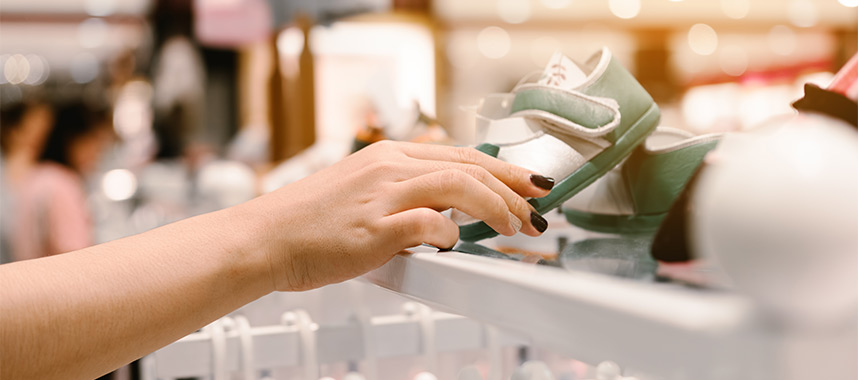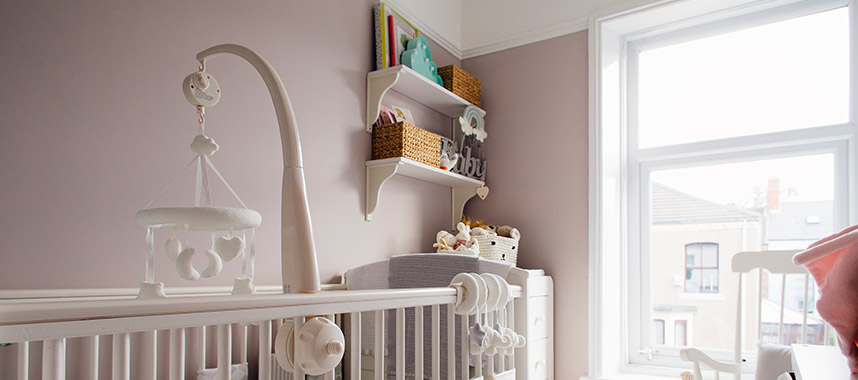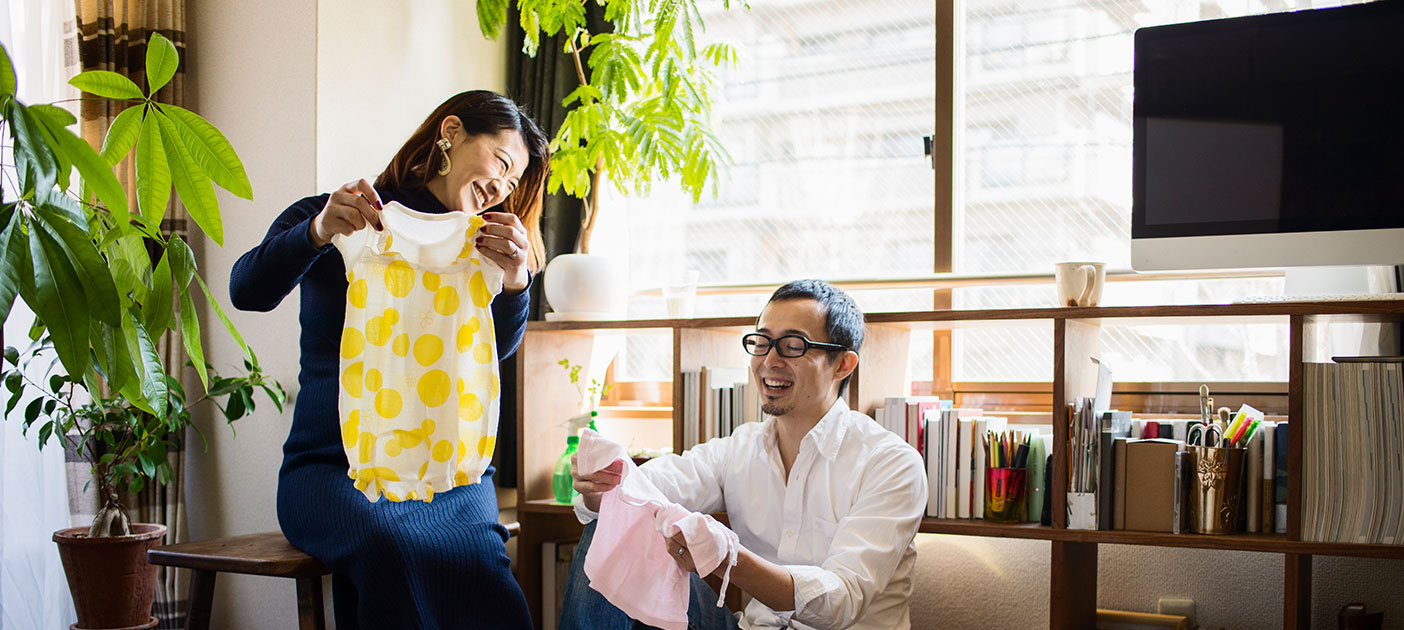![]()
If you’ve only got a minute:
- A baby changes everything, including your bank account balance. Learn how to manage your expenses while still providing the best for your new-born.
- Buy rationally, prioritising needs above wants and opting for pre-loved items if necessary. Afterall, saving for your new-born also means saving for their future.
- Getting life insurance early means securing cheaper premiums – it also provides you with greater ease of mind in case of unforeseen circumstances.
![]()
Having a baby is exciting news, especially for first time parents. But with a growing family comes new expenses and important financial decisions. It is a lot to manage, but it doesn’t have to be overwhelming.
If you are looking for ways to stock up for your baby’s first year without breaking the bank, here are 5 tips for you.

1. Buy only what you need, when you need it
The sheer joy of expecting a baby may drive you to fill your shopping cart with anything that baby might possibly need. As new parents, you might also suffer from “fear of missing out” and feel obliged to spend hundreds or thousands of dollars on expensive baby gear to welcome your newborn or even feel good as new parents.
Do bear in mind that babies grow rapidly and can quickly outgrow the expensive items you have bought. All those cute outfits you’ve stockpiled could get too small, too soon. Here’s an easy money saving tip to start with, especially for new parents.
Buy clothes and shoes that your baby needs such as home wear essentials, and a few outfits for the occasional outing. To jazz things up, take a leaf from the fashionistas: mix and match their outfits, or accessorise with a headband or a cap.
For larger ticket items such as carriers or prams, it’s even more important to purchase them closer to when you need them.
That’s because buying prams too far in advance “uses up” the warranty period. And because each child is different, your baby might not like the carrier or pram from your storeroom. It pays to wait till your baby is old enough to try it out instore. A comfortable baby makes for a happy parent.

2. Try before you buy
Your child can be finicky. This could include the brand of milk powder, diapers or even the bottles they drink from.
To avoid buying a whole lot of stuff that your baby rejects, try the free samples given out during baby fairs. Most brands would be happy to provide free samples (sometimes in exchange for an email address).
You can also tap on your network of friends or family whose child may be outgrowing certain items. Bottles can easily be sterilised and fixed with a new teat, allowing you to see how your child likes that combination before you head for the stores.
Minimising unnecessary purchases not only helps you save money for your new-born, it also minimises waste making it an eco-friendly practice!
Read more: Young Parents: Planning for finances in the now and future

3. Think long-term
Saving money for your newborn includes saving for their future. Remember these ABCs to help in your long-term planning.
A is for Across all ages
By using products that your baby can use as they grow into toddlers and pre-schoolers, you save money through the years. Especially if these are multi-purpose products.
Take car seats, for example. There are convertible car seats that can hold your child snug and safe from infant to toddler stage; and function as a carrier when it’s clipped onto a stroller frame.
Note: You might need to get an insert to have your child fitted correctly, but this multi-purpose product can last your baby for years, instead of months.
B is for Be insured
Life Insurance
By getting life insurance early, you reap 2 benefits for your child.
Firstly, the younger your child is, the cheaper the life insurance premiums are likely to be.
Secondly, it helps your child to be insurable even when they grow older. The benefit of this is that the earlier your child is insured, the cheaper and more affordable insurance is – and the greater your ease of mind for any unforeseen circumstances.
Health and Accident Insurance
Being young, the immune systems of infants, toddlers and pre-schoolers are weaker. This makes them more susceptible to Chicken Pox and Hand Foot Mouth Disease (HFMD), especially if you plan to send them to infant care. Active little ones are also more prone to injuries, simply because they run all over the place.
A kids’ protection plan is cheap and affordable, and will help you with medical treatment expenses. This also covers injuries caused by accidents such as a fracture sustained while playing at the playground.
Find out more about: Kids Protect
C is for CDA
Open a savings account for your child early.
A POSB Smiley Child Development Account (CDA) gets your baby extra savings from day 1, with dollar-for-dollar matching from the government. Your baby will also earn up to 2% per annum (p.a.) interest each year for amounts S$50,000 and below.
Read more: Growing your child’s savings
Find out more about: POSB Smiley Child Development Account (CDA)

4. Clear the storeroom and stock up
Savvy parents know that a sale or discount is a clarion call to fill their storerooms with baby and toddler products.
When your child goes through 6-8 diapers a day and a tin of milk formula per fortnight, bulk buying is the only way to save on necessities and cut down on trips to the stores.
That’s why it’s common to see this at baby fairs: parents wheeling out cartons of diapers, baby dish-washing liquid, and milk formula. But always remember to compare prices – a big SALE sign doesn’t always mean it is a bargain. If you manage to be savvy with your spending and get more for less, you can afford a baby even on a tight budget.
Oh, and if you have a POSB Smiley CDA, look out for the exclusive deals available for you and your baby.
Find out more about: Deals for all your family’s needs
5. Go from pre-loved to loved!
Given our country’s relative affluence, there are good bargains to be found when it comes to picking up second-hand items.
Online forums, listing aggregator apps and up-cycling sites all provide plenty of inventory for parents willing to accept a little wear and tear on items.
Given that family sizes are so small in Singapore, that used pram might only have been used for a year and would still have plenty of life to it. It is little wonder why pre-loved items appear on top of checklists for raising a baby on a budget.
As with any pre-owned items, be sure to carefully clean and wash all covers before letting your child use them. Going from pre-loved to loved not only saves you money, but also saves the earth!
Now, with all these extra savings you have gained, give you and your spouse a little treat – you’ve earned it.







